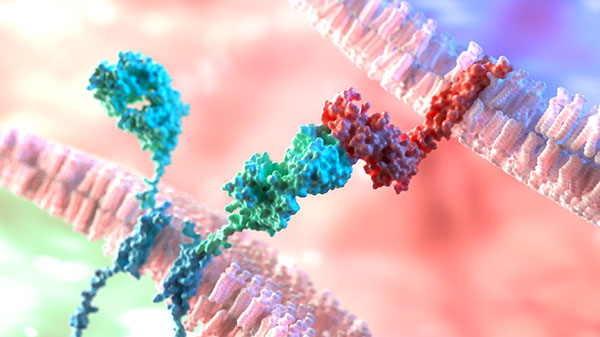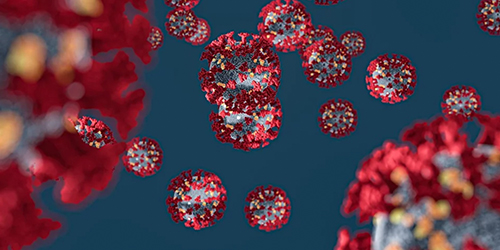Background Services Overview Published Data Protocols Related Products Q&A Resources
In complement test, Creative Biolabs has advanced laboratory technology and proven testing
platforms to provide customers with accurate, confidential, efficient, reliable and cost-effective autoantibody test
services to meet their needs. We are committed to leveraging our expertise in autoantibody test to accelerate the
progress of our clients' projects.
Background
Background of Anti-factor B Autoantibody
Complement dysregulation caused by anti-complement autoantibodies is involved in the pathophysiology of a number of
diseases. Autoantibodies against the complement regulator factor B (FB) are detected in patients
with dense deposit disease (DDD), C3 glomerulonephritis (C3GN) and atypical hemolytic uremic syndrome
(aHUS). Anti-FB autoantibody affects complement regulation and is implicated in the pathophysiology
of these diseases. The anti-FB autoantibody can bind to FB and/or the individual component Bb
part of C3 convertase. More importantly, this autoantibody can target the alternative pathway C3 convertase but has
some features that distinguish it from C3NeF. The anti-FB autoantibody binds to and stabilizes the alternative
pathway C3 convertase, enhancing the activity of the C3 convertase, which often leads to an increase
of complement breakdown products. Upon binding, the anti-FB autoantibody stabilizes the
convertase against both natural and factor H-mediated decay and thus enhances C3 consumption (Fig.1). However, the
anti-FB antibody inhibits the activation of the terminal pathway, likely by interfering with the formation of
the C5 convertase. Therefore, the differences between anti-FB autoantibody and C3NeF include the binding of the
autoantibody to native FB in plasma and the Bb fragment of the C3 convertase, and
interference with C5 convertase activity.
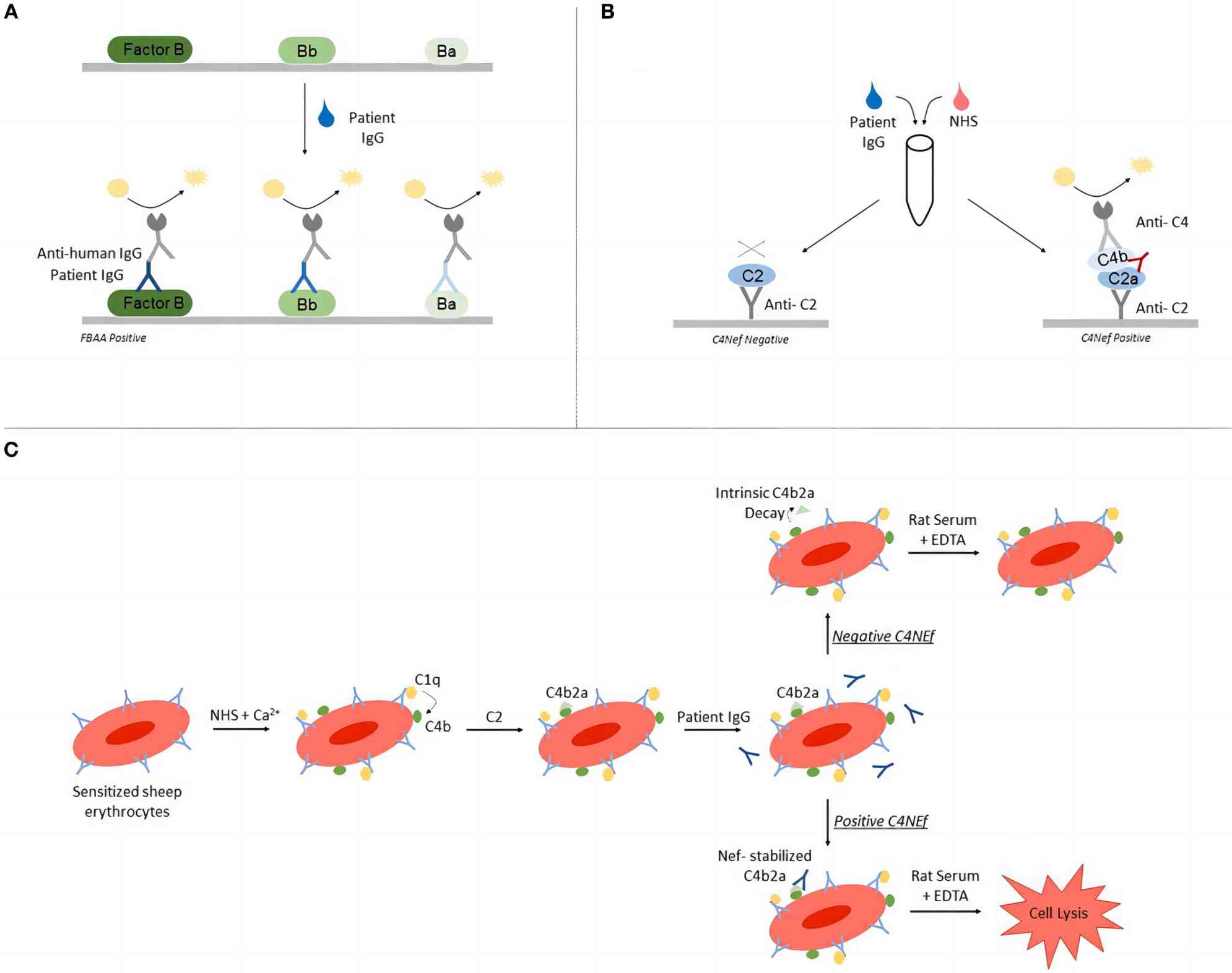
Fig. 1 The anti-FB autoantibody can be detected using ELISA.1, 3
Anti-FB Autoantibody Test
The anti-FB autoantibody represents an additional acquired driver of disease in DDD, C3GN, and
aHUS. Therefore, the anti-FB autoantibody test should be considered in the comprehensive
evaluation of patients with these diseases. Furthermore, the
anti-FB autoantibody test contributes to the diagnosis of these diseases and the development of
targeted therapies. Typically, the anti-FB autoantibody test can be deleted by enzyme-linked
immunosorbent assay (ELISA) with purified FB immobilized on the microtiter plate at
5 ug/ml. Serial dilutions of serum samples from patients are used as internal standards. The data obtained
as the optical density value is converted into U/ml units according to the standard.
Services Overview
Our Services of Anti-FB Autoantibody Test
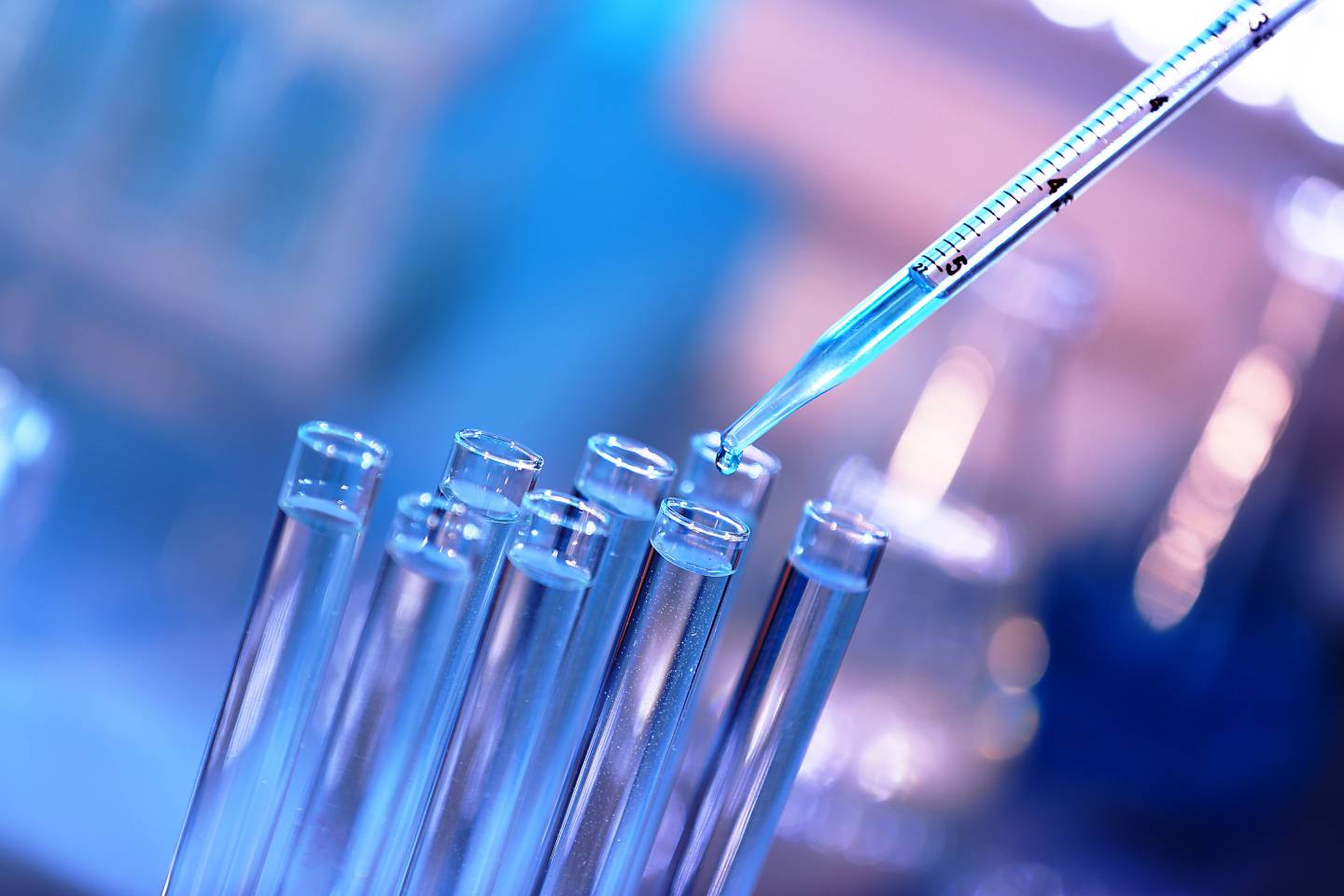
For many years, our comprehensive complement diagnostic test is powered by scientifically proven ELISA technology
and designed specifically to test complement autoantibody. Our scientists have experience in developing and
optimizing ELISA assays for anti-FB autoantibody. At each step, Creative Biolabs’s scientists will work in
close collaboration with the customer, offering high-quality anti-FB autoantibody test service and data
with highest accuracy and reproducibility. Our ELISA assay services are available for both pre-clinical and
clinical trials.
Why Choose Creative Biolabs’s ELISA Test Service for Your Research?
-
Our tests are highly sensitive and specific, providing a comprehensive ELISA selection to meet your demands.
-
Our dedicated ELISA testing experts ensure that your samples are treated in full accordance with the contracted
research requirements. We offer the rapid delivery of results and unparalleled testing service.
-
With our team of highly experienced scientists, we provide you with data of the highest accuracy and
reproducibility.
Creative Biolabs will continue to make unremitting efforts to provide services and technology to
meet customer's requirements. Please feel free to contact us for more
information about our complement testing services.
Published Data
Presented are findings showcased within articles pertaining to FB autoantibody test:
1. Anti-FB autoantibody ELISA
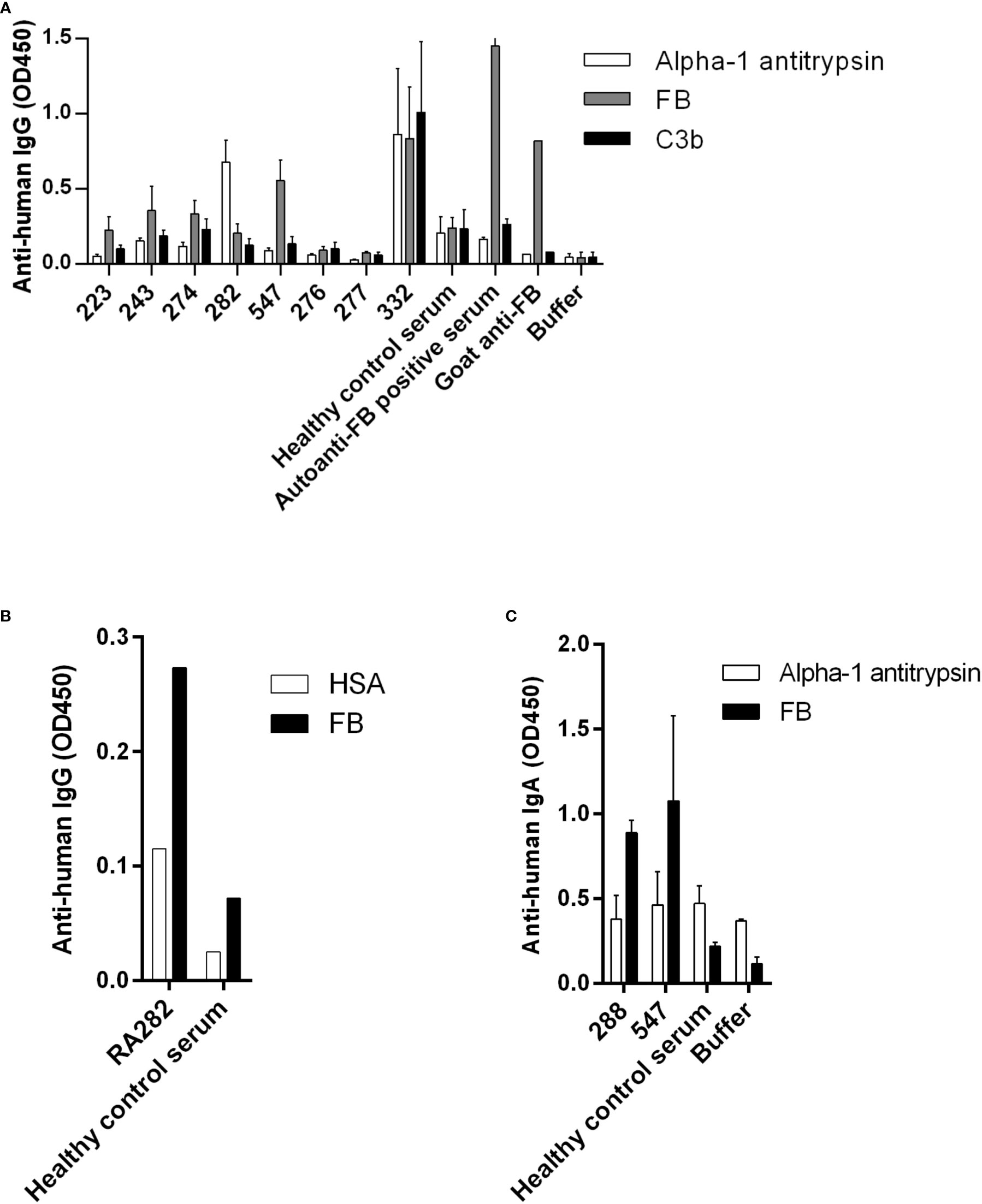 Fig. 2 Autoanti-FB in RA patients.2, 3
Fig. 2 Autoanti-FB in RA patients.2, 3
Alexandra T. et al. screened the Hungarian RA cohort for FH autoantibodies in order to investigate the
presence and role of complement-specific autoantibodies in RA. They also searched for autoantibodies against FB, FI,
C3b and the solid phase C3 convertase C3bBbP, and detected IgG and IgM antibodies against the above mentioned
complement components in serum samples from RA patients and healthy controls in an ELISA. Healthy control samples
were negative for all antibodies tested, and anti-FB IgA was detected in two patients.The titers and isotypes of all
five anti-FB IgG-positive samples were subsequently determined.
Protocols
Related Product
Resources
References
-
Hauer, Jill J., et al. "Factor B and C4b2a autoantibodies in C3 glomerulopathy." Frontiers in immunology 10 (2019): 668.
-
Matola, Alexandra T., et al. "Autoantibodies against complement factor B in rheumatoid arthritis." Frontiers in Immunology 14 (2023): 1113015.
-
under Open Access license CC BY 4.0, without modification
Questions & Answer
A: Complement factor B is a complement protein unique to the complement-activated alternative pathway (AP). Autoantibodies targeting factor B are called anti-factor B autoantibodies. This antibody stabilizes C3 convertase and prevents its decay. It also blocks the formation of C5 convertase, thereby inhibiting the activity of the terminal pathway. And it has been found in a small number of individuals and only in patients with C3 Glomerulopathy (C3G).
A: Anti-factor B autoantibodies assay is usually performed using ELISA assays. This method primarily tests the binding of anti-factor B autoantibodies to their target complement proteins. The plate is typically coated with a full-length protein, Bb fragment or Ba fragment. After incubation with purified IgG, binding can be detected using anti-human IgG.
A: Anti-factor B autoantibodies bind to the Bb portion of the single component of factor B/C3 convertase. This enhances C3 converting enzyme activity and leads to an increase in complement breakdown products. Based on this antibody characterization, it has been found to be associated with dense deposit disease (DDD), C3 glomerulonephritis (C3GN), and atypical hemolytic uremic syndrome (aHUS). This antibody may represent an additional acquired disease driver in DDD, C3GN, and aHUS.
A: This service can be crucial if your research involves immune system reactions, autoimmune disorders or complement system studies. It can offer insights on the activity of anti-factor B autoantibodies and their role in such conditions.
For Research Use Only.
Related Sections:



 Fig. 2 Autoanti-FB in RA patients.2, 3
Fig. 2 Autoanti-FB in RA patients.2, 3
